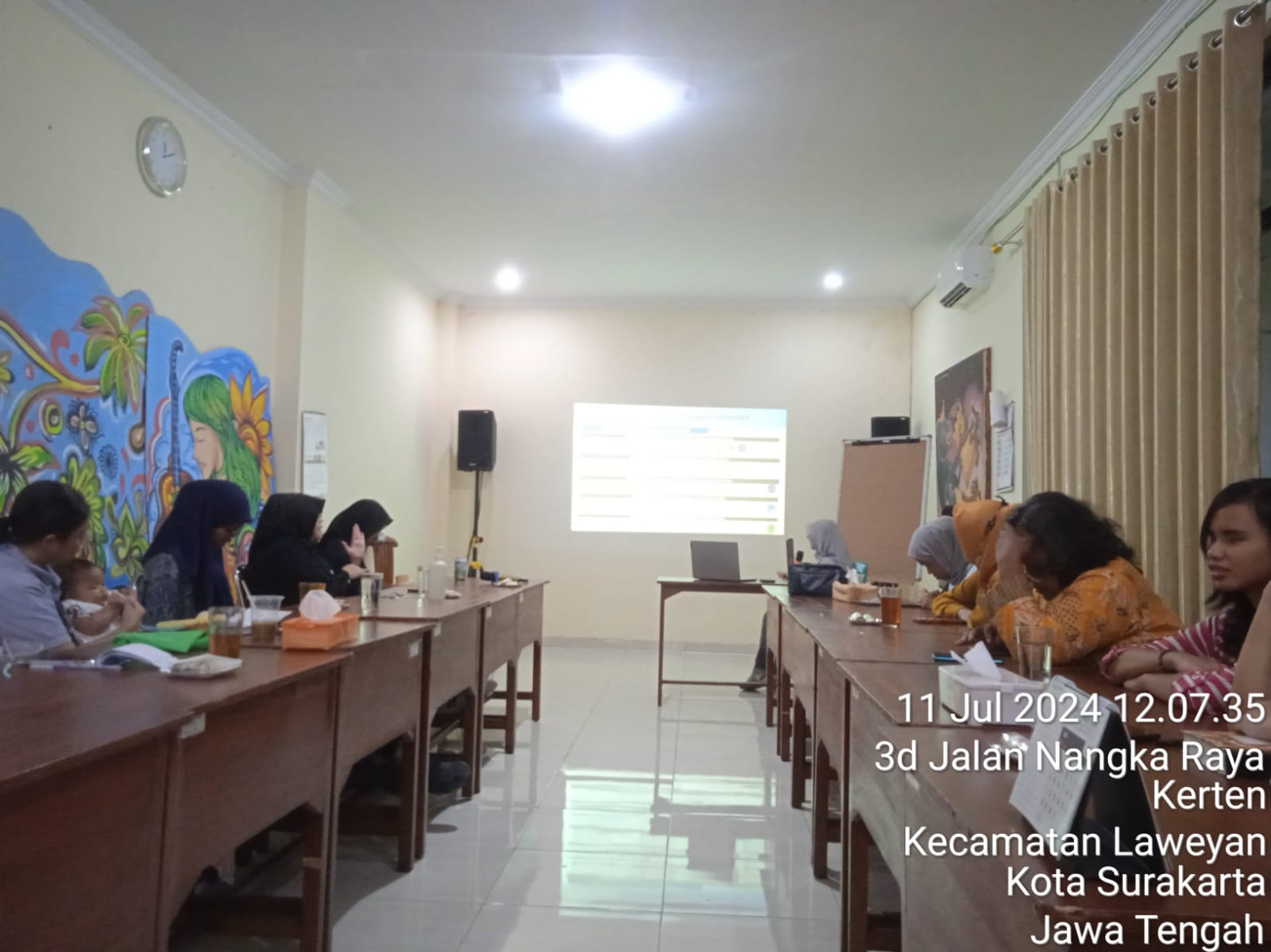The National Planning Board (Bappenas) noted that there were 680,521 people with disability in Central Java. This is the second largest number after Ewest Java.
The dfisability inclusiness analysis indicated that there were higher proportion poverty level amongst people with disabillity (13.81%) than the national average (9.36%). People with disability has less health coverage (24.34%), work participation (only 44% compared to the national everage of 69%), ownership of a bank account (23.65%, compared to the national figure of 41.02%), and basic educational certificates, i.e. at leat elementary school or Package A (at only 67.76% compared to the national figure of 80.19%).
Women made up the larger number of people with disability in Yogyakarta Special Province and in Central Java. In Yogyakarta Special Province, Gunung Kidul, Sleman and Bantul Districts share the largest number of people with disability. In Central Java, Brebes, Banyumas and Cilacap have the largest share of people with disability.
Bappenas has conducted an assessment and provided assistance for disability-inclusive development implementation towards district/provincial disability action plan in 24 districts and 29 provinces that had put in place disability regulation, in the forms of 27 regulations and governor regulation on disability action plan in South Kalimantan, Aceh and Bengkulu.
Bappenas highlighted a number of priority sectors for the inclusive national development – inclusive data collection and planning including relevant policies, which included inter-sectoral disability data collection and synergy and involvement of people with disability in inclusive planning and budgeting.
Then there was provision of accessible spaces through policies that improved accessibility to public services and facilities, to affordable and accessible housing, accessible public transport, public communication and information system, porotection of rights, access to politics and justice through policies that guaranteed full political rights for people with disability to participate in election without disrcimination, protection of people with disability from violence, exploitation and neglect during court process and decision, and increasing awareness of protection against violence for people with disability.
The other focus involved empowerment and independence of people with disability through policies to increase capacity in habilitation and rehabilitation services by institutions and communities, to increase supports and capacity of community workers, and to expand social welfare program coverage for poor and vulnerable people with disability. Then, there was an inclusive-economic policy (policies) to increase awareness about inclusive employment in government offices, to expand access to work opportunities for people with disability in order to improve their welfare, and to increase inclusive financial literacy for people with disability. In addition to these, there was also education and training in policies – to consolidate educational institutions’ and teachers’ capacity to provude inclusive education, to consolidate measures to reduce gaps in eccess to education for people with disability, to ensure innovation and governance reform in education and training institutions, and to open opportunities in sports and arts for people with disabilities.
With regards to access to health services, there was policy to improve capacities of health service providers to meet the needs of people with disability, to provide early health services for effective and comprehensive prevention and intervention for people with disability, and broaden participation and benefits of national health coverage for people with disability.
A disability issue activist, Nuraini summed up all the above during a discussion and meeting on Gender, Equality, Disability and Social Inclusion (GEDSI) Market at Anawin Hall, Yayasan YAPHI Surakarta. The meeting was important as it marked the seventh meeting after the group’s establishment a year earlier.
For her part, the director of YAPHI, Haryati Pancaputri, said that YAPHI facilitated GEDSI market by providing information on inclusion, basic concept about disability, promoting pro-disability policies, gender intersection, discussion on challenges and policies in Surakarta, and ensuring GEDSI market continuity.
The GEDSI Market has done all that Bappenas suggested this year, and would encourage revision in order to ensure that what Bappenas was doing would align with GEDSI, and would review and discuss further.
The moderator, Adi. C Kristiyanto explained that it would be possible to discuss further the meeting agenda and the inputs in order to realistically assess the capacity of Surakarta public services to meet the needs of people with disability, especially the shortcomings as indicated by finding – re guiding blocks still being used for motorcycle parking, or for plant pots, or for food stalls. Adi also explained about the renovation being made in YAPHI’s office building to make it inclusive. He also summed up materials presented during GEDSI class regarding ways to accompany people with visual impairment and regarding two YAPHI staff who adapt materials for inclusion by incorporating sign language.
One participant, Rahmat asked whether there was already a budget for inclusive educational infrastructure. Nuraini answered this issue was the responsibility of the Disability Service Unit, particularly at university level, and that she could relay the question to the rector. Nuraini explained that Sebelas Maret University (UNS) welcomes relevant opinions, not just within the politic faculty. She relayed her experience working in a university and suggested that the Disability Service Unit of the University was ready to discuss the issue.
The discussion facilitator, Pamitkasih then collected all participants’ inputs during the GEDSI Market, including inputs about conducting training and accompaniment of disability issues, collaboration and cooperation with other parties, structured scheduling, redefining social inclusive city in partnership with the government, continuous GEDSI learning, advocacy for visual accessibility, inviting new colleagues and continuing GEDSI class.
How can GEDSI class be sustainable and how to expand networks, and to accommodate larger class? GEDSI class will eventually come to a point of understanding about equality and share that understanding with other people in real life setting.
After the class went through with all the topics, a plan emerged to invite stakeholders and colleagues in other NGOs (Non Goverment Organization) to present the result(s) and to discuss further. (Renny Talitha/ Ast)












